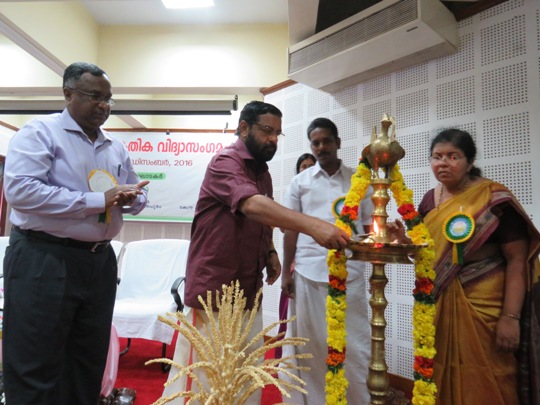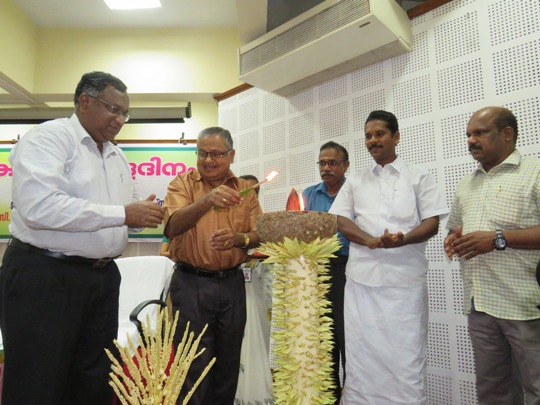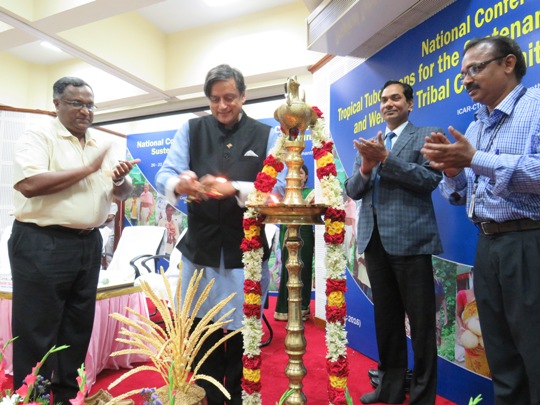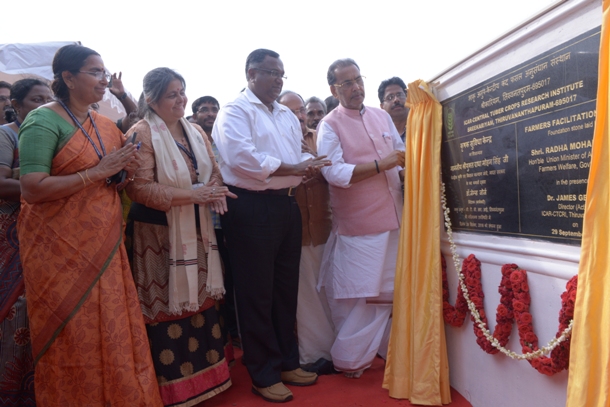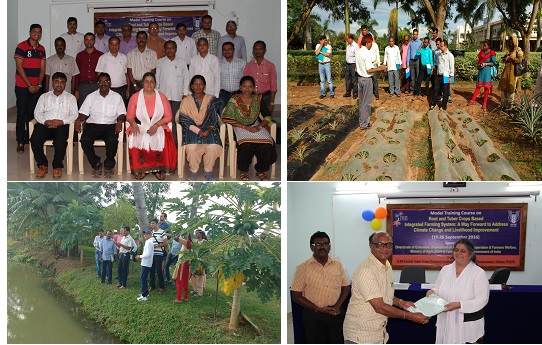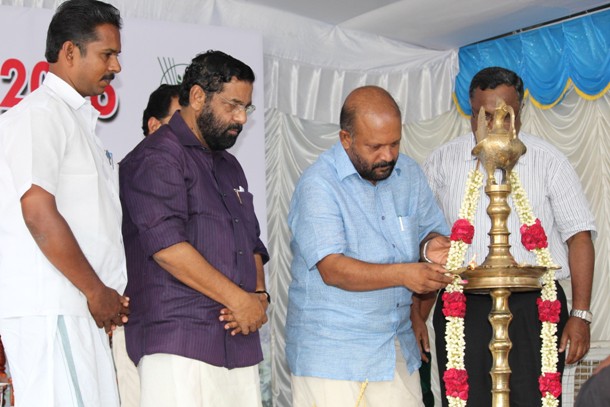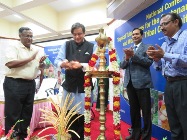The Model Training Course entitled “Root and tuber crops based integrated farming system: A way forward to address climate change and livelihood improvement” was organized at ICAR-CTCRI, Regional Centre, Bhubaneswar during 19-26 September, 2016. The course was sponsored by the Directorate of Extension, Department of Agriculture, Cooperation and Farmers Welfare, Ministry of Agriculture and Farmers Welfare, Govt. of India, New Delhi. The training programme was conducted with the objectives; to provide advance training to the state agricultural officers and scientists of ICAR/SAUs/KVKs and improve their skills in the area of Root and Tuber Crops Based Integrated Farming System (IFS); to show the trainees live demonstrations/ experiments on IFS to improved resource-use efficiency, and to provide an opportunity to discuss and exchange ideas/ knowledge sharing between the academics and with the experts/resource persons who have made notable contributions in this area.
Integrated Farming System (IFS) is a multi-disciplinary whole-farm approach for solving the problems of small and marginal farmers. This approach aims at increasing income and employment from small-holdings by integrating various farm enterprises and recycling crop residues and by-products within the farm itself. Under the gradual shrinking of land holding, it is required to integrate enterprises like fishery, poultry, duck rearing, apiary, field and horticultural crops, protected cultivation, mushroom cultivation, dairy, value addition and product development etc. within the bio-physical and socio-economic environment of the farmers to make farming more profitable and dependable. Further tuber crops are climate resilient and they bring assured income to the farmers. Tuber crops serve as food, feed and raw material for industries. Keeping this in view, the course contents were plannned accordingly, to share knowledge on the latest development in root and tuber crops based IFS and sensitize the extension functionaries of state departments and scientists of KVKs/ICAR.
Nineteen officials from State Departments and Scientists from KVKs/ICAR Institutes in the areas of Agricultural Sciences from six states viz., Andhra Pradesh, Himachal Pradesh, Karnataka, Kerala, New Delhi and Odisha participated in the programme. The course was organized by Dr. M. Nedunchezhiyan, Principal Scientist & Course Director and Mr. V.V. Bansode and Dr. V.B.S. Chauhan, Scientists & Course Coordinators. Certificate of Participation was distributed to the participants by Dr. A. Mukherjee, Head, ICAR-CTCRI, Regional Centre, Bhubaneswar.





